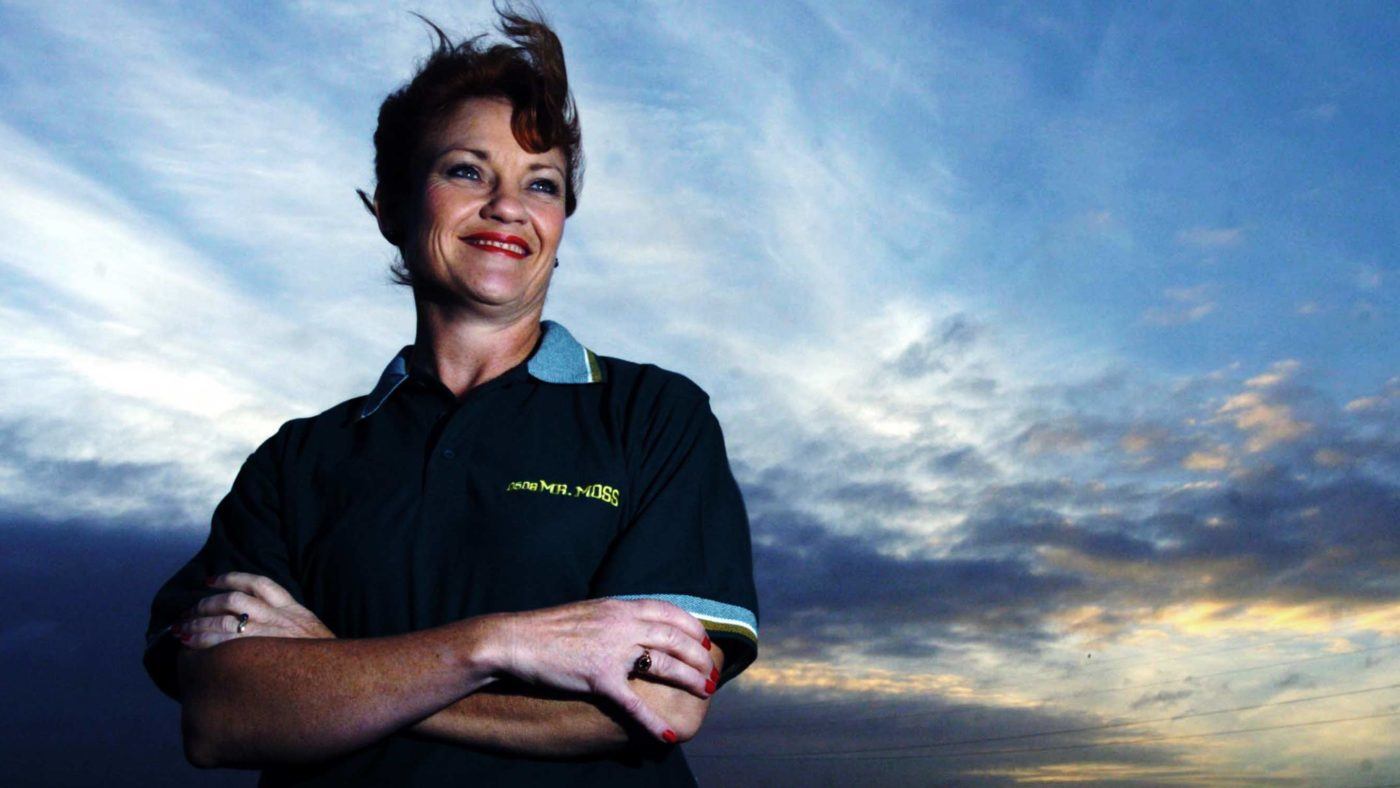After almost 20 years out of the spotlight, controversial Australian political figure Pauline Hanson is getting ready to storm back into Canberra. Hanson is the leader of One Nation, a far-right political party with a populist, conservative, and anti-multiculturalism platform. With humble beginnings as a fish-and-chips shop owner in Ipswich, Queensland, Hanson moved onto to politics as an independent local councilor in 1994, and has since then been a controversial figure in Australia, both on and off the political scene.
Hanson started off in the Liberal Party of Australia, and was promoted as the Liberal candidate for the House of Representatives electorate of Oxley, Queensland, for the March 1996 Federal Election. Her maiden speech to the House on September 10th, in which she criticised Aboriginals, multiculturalism and immigration, caused a storm of controversy. Hanson claimed minority groups “have their own culture and religion, form ghettos and do not assimilate”. The contentious sentence “I believe we are in danger of being swamped by Asians” became famous across Australia.
Her speech was criticised throughout the House and the wider Australian population. However, the Prime Minister of the time, John Howard, believed Hanson’s speech enabled Australians “speak a little more freely and a little more openly about what they feel”. Ultimately, she was dumped by the Liberal Party for her racist comments, and went on to run as an independent.
In 1997, along with her advisors David Ettridge and David Oldfield, Hanson founded the One Nation Party. Hanson continued to promote her anti-immigration ideas and her fight to protect the Australia’s Anglo-Celtic tradition, dismissing accusations that her party was racially hateful. When challenged about her statements on immigration and race, Hanson asserted that “criticism is not racism”.
One Nation enjoyed a brief success in the House but the support for it had fallen from 22% to 5% by 1999. Moreover, disputes between Hanson and her advisors led to a lawsuit over the organisational structure of One Nation. The jury found Hanson had fraudulently received nearly $500,000 in electoral payments after lying about the party’s membership. Hanson and Ettridge lied to state electoral commissioner at the time, Des O’Shea, saying that One Nation had more than 500 members — making it eligible for registration — when members listed were actually part of a supporters group. Hanson and Ettridge served 11 weeks out of a 3 year sentence in 2002.
Following her jail term, Hanson attempted to return to the political scene, but was unsuccessful. She had stints on reality television shows in the likes of Dancing with the Stars and The Celebrity Apprentice.
And now, Hanson is back in politics, after winning a seat in the 2016 elections last weekend. In fact, her One Nation party could win several Senate seats once all the votes are counted. But the question on everyone’s lips is this: how did she manage to resurrect her political career?
Hanson claims to be committed to Australian sovereignty, the Constitution and Government, but at the expense of minority groups. Her policies revolve around anti-Islamic ideals such as banning the burqa and installing security cameras in mosques, as well as the controversial “zero-net” migration pledge.
“Most of her vote comes from people who just think mainstream politicians are all a bunch of crooks and aren’t listening, and Hanson is ‘one of us’,” says Political lecturer Paul William at Griffith University.
Much like her political career in the 90’s, Hanson’s re-emergence has not been well received by the House and the Australian people. Before polling day, Prime Minister Malcolm Turnbull pleaded with voters to stop a Hanson return. “Pauline Hanson is, as far as we are concerned, not a welcomed presence on the Australian political scene,” he said. “You’ve got to remember she was chucked out of the Liberal Party.”
Indeed, her presence has dangerous implications for the broader needs of Australia and its people. Her hateful policies will hurt potential investment with Asian countries, which are some of Australia’s biggest trading partners. In addition, the international education sector will suffer an immediate and dramatic shock, with the impact of Hanson’s hateful policies driving students from overseas away from Australia.
Polarizing figures like Pauline Hanson invite discrimination against minorities. There was a great deal of ugliness and division unleashed by Ms Hanson in the 90’s. How far will she go this time?


